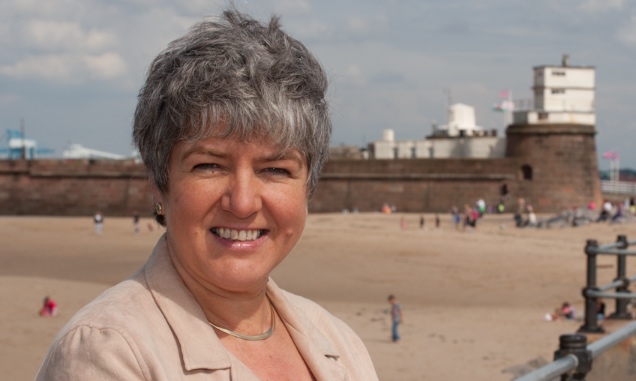Metro Mayor Steve Rotheram appoints a raft of female advisers but there remains a shocking lack of female representation at senior levels of local government across Merseyside. Tony McDonough reports

When Liverpool City Region Metro Mayor Steve Rotheram unveiled his top team at the end of May the immediate reaction from many was that Joe, Phil, Rob, Ian, Andy and Barrie were funny names for women.
The total absence of female voices on the combined authority – a body with power over a sub-region with a population of more than 1.5m – seemed extraordinary.
It must be stressed the situation was not within Steve Rotheram’s control. Legislation governing the make-up of the combined authority dictated that the voting members had to be the Mayor and the leaders of the six local authorities.
No representation
So Liverpool Mayor Joe Anderson joined the elected leaders of Wirral, Phil Davies; Halton, Rob Polhill; Sefton, Ian Maher; Knowsley, Andy Moorehead; and St Helens, Barrie Grunewald.
But a place at the table was also found for businessman Asif Hamid, chair of the Liverpool City Region Local Enterprise Partnership; chair of Merseytravel Cllr Liam Robinson; and Frank Rogers, chief executive of Merseytravel – all men.
Women across the Liverpool city region voiced their frustration at this total lack of representation.
New appointments
The situation has now been addressed, at least in part, after Mr Rotheram unveiled a raft of Mayoral advisers on Friday.
They were headed by Merseyside Police and Crime Commissioner Jane Kennedy who will provide expertise on the area of criminal justice. Also co-opted onto the authority are:
- Vice-Chancellor of the University of Liverpool, Janet Beer, who will advise on higher education
- Kate Farrell, director of Crisis Skylight Merseyside, advising on homelessness
- Rev Canon Dr Ellen Loudon, Canon Chancellor at the Liverpool Cathedral, who will represent the voluntary and community sector
- Barbara Spicer, chief executive of Plus Dane Group, who will advise on social housing
- Wavertree Labour MP Luciana Berger, advising on mental health
- Businesswoman and chair of the Liverpool City Region’s Visitor Economy Board, Sarah Wilde McKeown, advising on the visitor economy
- Former Liverpool city councillor, Gideon Ben-Tovim, chair of the Innovation Agency, will advise on the natural environment
Mr Rotherham said: “I am thrilled that such a talented group of individuals have agreed to work with me to help broaden the scope of the devolution deal and implement the convening powers of office.
“The role of the advisers is about utilising experts from right across Merseyside and Halton who are doing pioneering work in their fields to improve business opportunities and the lives of ordinary people.”

Still no vote
That the majority of these new appointees are women is a step in the right direction but, of course, none will have an actual vote when the combined authority makes the big decisions that will affect all our lives.
Tabitha Morton, who stood against Mr Rotheram in the City Region Mayoral election for the Women’s Equality Party summed it up succinctly following the announcement of the main cabinet in May.
She told YBNews: “The Liverpool city region is missing out on the talents of 51% of our population.
“Women’s experiences are not reflected in vital decision making as we are not at the table. You cannot be what you cannot see.”
Indeed, and the spotlight surely now falls on the political decision-makers within the six local authorities and why they appear so reluctant to choose women to be their council leaders.
Old patriarchy
All six are Labour-controlled and it seems amazing that a party that supposedly occupies the progressive wing of British politics so often seems to look to middle-aged white men to fill its positions of power.
Is it that the voters would find the idea of women in senior positions unpalatable?
Well given the same voters have happily elected women such as Luciana Berger, Louise Ellman, Alison McGovern, the Eagle sisters Maria and Angela, Margaret Greenwood and Marie Rimmer to represent them in Parliament, it would appear not.
Is the party at local level still wedded to the old Labour patriarchy of the 1960s and 70s – pompous old curmudgeons making decisions in back rooms over beer and sandwiches while their wives stayed at home making their tea?
Over the past year or so Labour has enjoyed a surge in new younger members, many of them women. It’s a party now bursting with talented people possessing drive, intelligence and fresh ideas.
We are 17 years into the 21st century and we really shouldn’t have to be talking about this any more.

